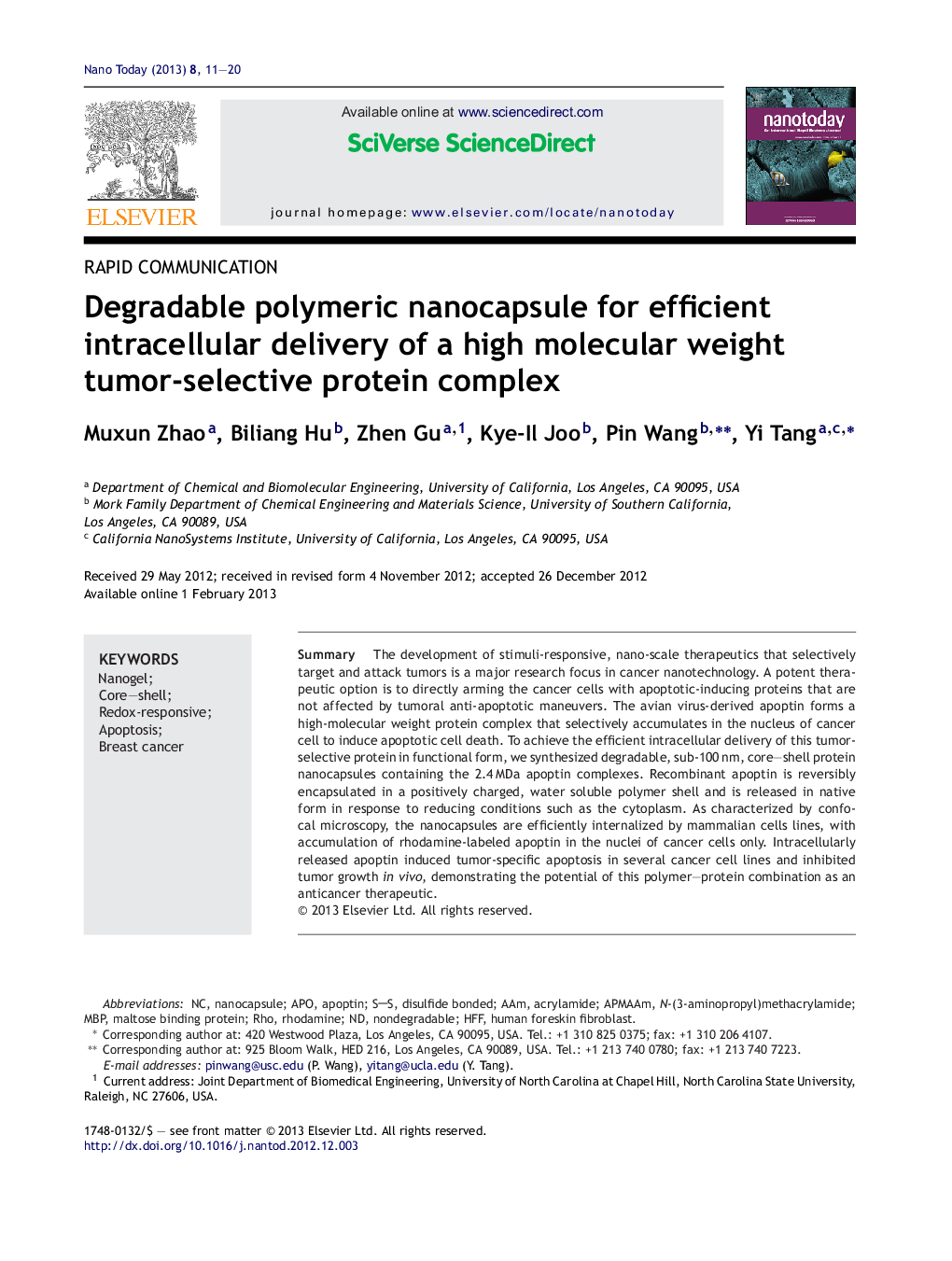| Article ID | Journal | Published Year | Pages | File Type |
|---|---|---|---|---|
| 32173 | Nano Today | 2013 | 10 Pages |
SummaryThe development of stimuli-responsive, nano-scale therapeutics that selectively target and attack tumors is a major research focus in cancer nanotechnology. A potent therapeutic option is to directly arming the cancer cells with apoptotic-inducing proteins that are not affected by tumoral anti-apoptotic maneuvers. The avian virus-derived apoptin forms a high-molecular weight protein complex that selectively accumulates in the nucleus of cancer cell to induce apoptotic cell death. To achieve the efficient intracellular delivery of this tumor-selective protein in functional form, we synthesized degradable, sub-100 nm, core–shell protein nanocapsules containing the 2.4 MDa apoptin complexes. Recombinant apoptin is reversibly encapsulated in a positively charged, water soluble polymer shell and is released in native form in response to reducing conditions such as the cytoplasm. As characterized by confocal microscopy, the nanocapsules are efficiently internalized by mammalian cells lines, with accumulation of rhodamine-labeled apoptin in the nuclei of cancer cells only. Intracellularly released apoptin induced tumor-specific apoptosis in several cancer cell lines and inhibited tumor growth in vivo, demonstrating the potential of this polymer–protein combination as an anticancer therapeutic.
Graphical abstractFigure optionsDownload full-size imageDownload high-quality image (256 K)Download as PowerPoint slideHighlights► We synthesized polymer nanocapsules for delivery of tumor-selective protein. ► The nanocapsule can be internalized by different tumor cells. ► The protein cargo is released intracellularly in the cytoplasm. ► Released complex induced apoptosis and inhibited tumor growth.
